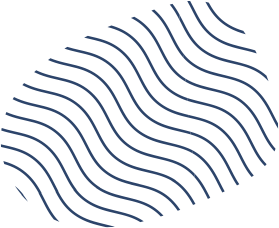
therapist here.
Therapist-client fit can make or break therapy.
Finding the right therapist is one of the greatest predictors of successful therapy.
That’s why Ethera makes it easy to get connected with your future provider.
Find the best therapist for YOU at Ethera.



Simply filter and search through our diverse provider directory to find the right therapist for you. You can easily request a consultation directly through their profile.
We get it, looking for a therapist can feel overwhelming. We’re here to help. Contact us to request personalized matching services.
*All Ethera providers are independent practitioners and are not employed by Ethera. This means they set their own schedule, determine their own fees, and create their own policies and procedures. Ethera members are vetted to be quality therapists who value growth, learning, and collaboration. Ethera offices are located in Irvine, Orange County.

Our comfortable space is custom designed to ensure the best therapy experience. As you wait for your appointment in our waiting room, you’ll notice that the layout of the space offers organic privacy that doesn’t feel forced or isolating. Walk through the hallway and experience the calm of white noise and soft piano music. Exit through our separate client exit and appreciate the maintenance of your privacy and discretion.

Technology is integrated into our modern space. Ethera offers two quick and easy check in options. Check in with your provider through our kiosk while you wait in our comfortable waiting room. Or check in on our mobile app and wait for your appointment in the comfort of your own car until your provider sends you a digital key. You can also view your upcoming appointments and pay your bill through the Ethera Client Portal.
Our space is designed with the client experience in mind. We understand that the physical space around you can greatly impact your feelings, so we made sure that from the moment you step into the waiting area, you feel safe and calm. From the layout of the space to the consistency of design, from the strategic soundproofing to the check in options, Ethera was designed with your comfort and privacy in mind.
Thinking about going to therapy, but not sure how to find the right therapist? How
Thinking about going to therapy, but not sure how to find the right therapist? How
Thinking about going to therapy, but not sure how to find the right therapist? Emotional
Thinking about going to therapy, but not sure how to find the right therapist? Coping
Thinking about going to therapy, but not sure how to find the right therapist? Comparison
Thinking about going to therapy, but not sure how to find the right therapist? Comparative

Short Term (Solution-focused, etc.)
Ideal for those who are coming in with a specific problem they’d like to address and gain clarity on. Typically, short term therapies are present focused and do not dive deep into your past.
Structured
Structured therapies are goal and progress oriented. Therapists may incorporate psychoeducation and a specific “curriculum.” In order to stay on track, therapists may provide worksheets and homework.
Insight-oriented (Psychodynamic, Existential, etc.)
Exploring the past and making connections to present issues can help clients gain insight. Getting to the root of the issue and finding deeper self-awareness can help with long-term change.
Non-directive (Humanistic, Person-centered, etc.)
Going with the flow and seeing where it leads.
Behavioral (CBT, DBT, etc.)
Focuses on changing potentially unhealthy or self-destructive behaviors by addressing problematic thought patterns and specific providing coping skills.
Trauma Focused (EMDR, TF-CBT, etc.)
Recognizing the connection between trauma experiences and your emotional and behavioral responses, trauma focused therapy seeks to help you heal from traumas.